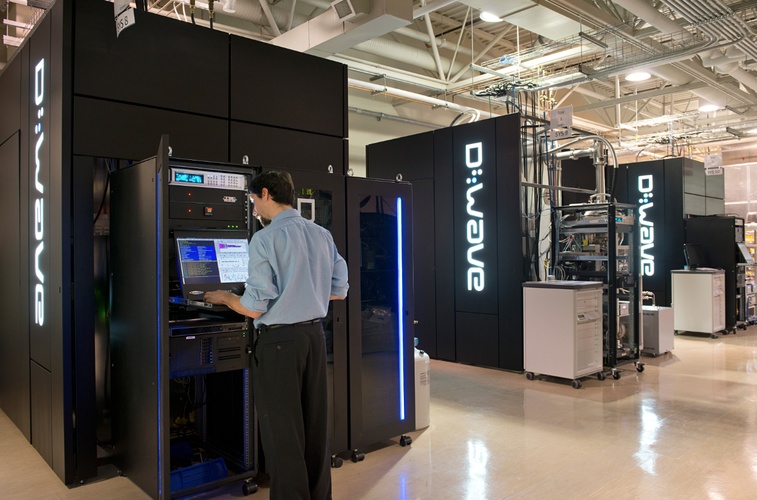Quantum Computing
-- posted August 2016 --
Quantum computing is a novel trend in information processing based on the principles of quantum mechanics (a.k.a. quantum physics, quantum theory) - a scientific field that describes the behavior of miniature particles at the scale of atoms and electrons. The movement of these particles cannot be efficiently explained or mathematically formulated with the theory of classical mechanics, related to the behavior of large scale bodies.
As we know, a conventional computer uses bits (i.e., binary digits) as basic units for information representation, where a single bit can encode two possible discrete values: 0 or 1. Differently, a quantum processor utilizes a different type of basic units for information encoding, called adequately, quantum bits, or qubits. The main distinguishing feature of the qubits is related to the phenomenon of superposition in quantum theory, which allows a system to be in multiple states at the same time. Consequently, a qubit can simultaneously represent 0 and 1 states, as well as various superpositions of these states. This property enables a quantum computer to perform a large number of computations simultaneously, and thus, provide a superior computational power in comparison to a conventional computer.
The development of quantum computers nowadays is evocative of the development of digital computers in the sixties of the last century: today’s quantum machines are big and bulky, there are only a handful in the world each costing millions of dollars, and are used in niche applications. As a matter of fact, the only company that currently produces quantum processors is D-Wave Systems Inc., a Canadian company based in Vancouver. Since 2011, D-Wave Systems have produced 3 series of quantum computers, with a capacity of 128, 512, and 1152 qubits, respectively. Independent researchers reported the processing abilities of these systems in solving certain tasks being several thousand times faster than a classical single-core computer. However, other comparative studies claimed that the performance of quantum processors is slightly, if at all, faster than an ordinary desktop computer, and there are even academic voices expressing open skepticism that the operation of the D-Wave systems is based on quantum mechanics. These computers (see the picture below) essentially look like a huge freezer with a tiny chip and some microelectronics in it. They are designed to maintain the temperature of the quantum system material close to the absolute zero, in order to prevent any interactions with the external world, which can cause the system to fall out of its quantum state, known as quantum decoherence.
The future quantum computers may radically streamline our processing capabilities, and allow solving intractable problems that are presently either unsolvable or take an impractically long period of time to be solved with traditional computers. The field of quantum computing is developing at a fast pace, with new academic research emerging ever so often. Two recent scientific breakthroughs include quantum processing performed at room temperature using carbon nanostructures materials, and simulation of the energy configurations of a hydrogen molecule, which is very challenging to carry out using a classical computer precisely due to the superposition of the different molecular particles. That is, in the case a quantum computer is employed to simulate a quantum process, which makes perfect sense.
The following 7:17 minutes video explains the fundamentals of quantum computing:
https://www.youtube.com/watch?v=JhHMJCUmq28

Image source: https://www.biv.com/article/2016/5/D-Wave-bringing-quantum-computing-to-finance/
